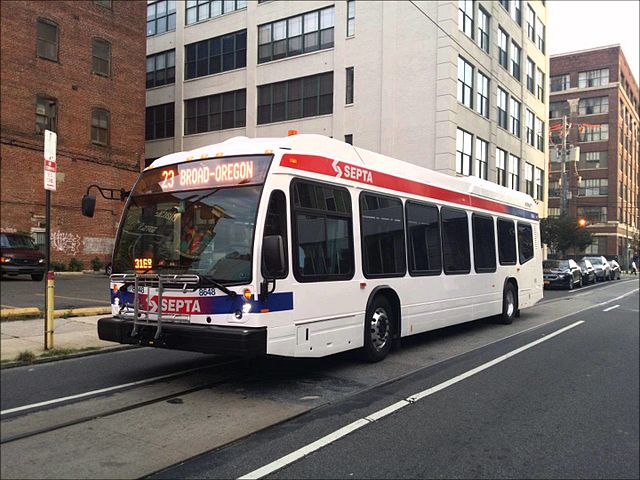Whether you had a slip and fall accident on SEPTA property or a SEPTA vehicle, the claim is not as straightforward as a slip and fall on private property. With a SEPTA slip and fall claim you still must prove either SEPTA had actual or constructive notice of a hazard, or that the hazard was caused by the negligence of a SEPTA employee, as you would with an individual property owner. However due to Pennsylvania’s sovereign immunity act, 42 PA Cons Stat § 8521, and the exceptions to that act found in 42 PA Cons Stat § 8522, there are additional requirements to successfully bring a slip and fall claim against SEPTA.
What Do You Need To Prove A Slip and Fall Case Against SEPTA?
In any slip and fall case against SEPTA one requirement is you must prove the hazard that caused your fall was a defect of the property and not on the property. If it was just a hazard on the property – such as ice that naturally formed on a SEPTA regional rail platform, or water on the ground in a SEPTA bus or subway – then SEPTA cannot be held liable for any injuries you suffer from slipping on that hazardous substance and falling. SEPTA has statutory immunity from such claims unlike a private property owner. Instead, you must prove there was a defect with the property to recover for your injuries.
For an example of a defect with the property, SEPTA could be held liable if there is a large crack or hole on the walkways to a SEPTA train station or subway station that causes you to fall and be injured. SEPTA could also be held liable if a defect causes liquids to spill on walkways of SEPTA property that freezes over and forms ice. The difference with this ice is it is not ice that naturally formed, but instead formed due to a defect with SEPTA property. If a SEPTA employee’s negligence causes a hazardous substance to be on the floor of SEPTA property, and that hazardous substance causes you to fall, then SEPTA may be liable. This will all depend on the facts of your case.
What Happens If Sudden Accelerating or Stopping Causes My Fall In A SEPTA Vehicle?
Sometimes people fall on SEPTA vehicles due to the sudden movement or stopping of that vehicle. If you have such a trip and fall accident due to the sudden movement, jerking, acceleration, or stopping of a SEPTA vehicle, just because you fell and have injuries does not mean you have a claim. Under Pennsylvania case law you must prove the sudden acceleration, stopping, etc. that caused your fall also caused other passengers on the SEPTA vehicle to fall. You can do this with witness statements, SEPTA surveillance video, or SEPTA incident reports if the accident warrants involvement of SEPTA police. This is also known as the “jerk and jolt doctrine”.
If you cannot prove that the sudden jerking or jolting of the SEPTA vehicle caused other passengers to fall, then SEPTA will be immune from your fall claim. This means you cannot file suit or attempt to recover for any injuries you suffered as a result of a fall from a sudden jerking and jolting of a SEPTA vehicle without this evidence. If, however, your fall was caused by the negligent operation of the SEPTA vehicle by a SEPTA employee, you may have a valid claim against SEPTA even if no other passengers fell. This will all depend on the facts of your case.

Yesums, CC BY-SA 4.0 <https://creativecommons.org/licenses/by-sa/4.0>, via Wikimedia Commons
Besides the above you will have the standard requirements in any slip and fall case to have a claim against SEPTA. You will have to show either a SEPTA employee’s negligence caused the defect which led to your fall, or that SEPTA had actual or constructive notice of the defect and did nothing to address it. Constructive notice means the defect was present for enough time for SEPTA employees to notice the defect. For example, if there is proof a defect existed during required inspections of SEPTA property by SEPTA employees, this could constitute constructive notice even if the SEPTA employees did not see or report the defect.
You will also have to prove your injuries and need for medical treatment were a result of the defect which led to your trip and fall accident. You can do this through your medical records, testimony from friends and family members, and testimony or reports of your treating doctors and other medical professionals. If you have past or future lost wages due to your inability to work from your injuries, you can prove that through pay stubs, tax returns, testimony from your co-employees, and vocational or other economic experts your attorney may retain.
The Thistle Law Firm is experienced at handling slip and fall, and trip and fall, claims against SEPTA. If you or a loved one was injured in a slip or trip and fall accident on SEPTA property, the attorneys at the Thistle Law Firm are here to take your call and answer your questions at 215-568-6800.

